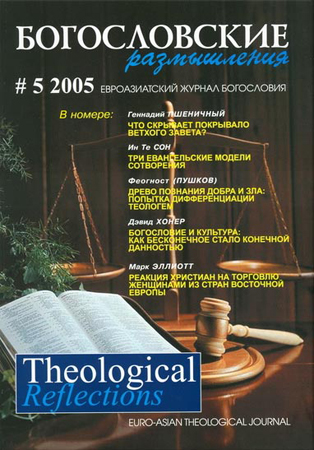Theology and Culture: How the Infinite Became a Finite Fact
Keywords:
Theology and Culture, understanding culture,Abstract
The purpose of this article is to provide a sketch of a possible theology of culture. The first half of the article is devoted to exploring various biblical-theological motifs that provide a framework for understanding culture. These motifs include OT creation-wisdom theology, humanity as the image of God, the old and new covenants, and the Johannine logos concept. The second half is devoted to developing a constructive theological account of culture by employing a Trinitarian account of divine self-revelation and by exploring what implications it has for the church’s reception and articulation of the gospel. It is the contention of this author that culture is neither wholly evil nor wholly good. As the divinely-ordained context of our existence, culture is the inescapable matrix in which and out of which we theologize. In this article it is argued that the interaction of theology and culture requires a bi-directional process of contextualization that involves the articulation of the gospel in existing cultural symbols while integrating these symbols into the Christian story.
References
- Barth, Karl. Church Dogmatics, I.1, tr. G.T. Thomson. Edinburgh: T. & T. Clark, 1936.
- Berger, Peter L. The Sacred Canopy, Elements of a Sociological Theory of Religions. New York: Doubleday, 1967.
- Brueggemann, W. Theology of the Old Testament. Minneapolis: Fortress Press, 1997.
- Calvin, John. Institutes of the Christian Religion, 2 vols., ed. John T. McNeill, trans. Ford Lewis Battles, Philadelphia: The Westminster Press, 1960.
- Fee, Gordon D. The First Epistle to the Corinthians. Grand Rapids, MI: William B. Eerdmans Publishing Company, 1987.
- Greengus, Samuel. «Law: Biblical and ANE Law,» The Anchor Bible Dictionary, vol. 4, ed. David Noel Freedman. New York: Doubleday, 1992. Pp. 24252.
- Grenz, Stanley J. and John R. Franke. Beyond Foundationalism: Shaping Theology in a Postmodern Context. Louisville, KY: Westminster John Knox Press, 2001.
- Hart, Trevor. Faith Thinking: The Dynamics of Christian Theology. London: SPCK, 1995.
- Metzger, B. The Canon of the New Testament: Its Origin, Development, and Significance. Oxford: Clarendon Press, 1987.
- Murphy, Nancey, Beyond Liberalism and Fundamentalism. Valley Forge, PA: Trinity Press International, 1996.
- Murphy, Roland E. «Wisdom in the OT,» The Anchor Bible Dictionary, vol. 6, ed. David Noel Freedman. New York: Doubleday, 1992. Pp. 92031.
- Newbigin, Lesslie, The Open Secret: An Introduction to the Theology of Mission, Rev. ed. Grand Rapids, MI: William B. Eerdmans Publishing Company, 1995.
- Selman, M.J. «Law,» Dictionary of the Old Testament Pentateuch, ed. T. Desmond Alexander and David W. Baker. Downers Grove, Illinois: InterVarsity Press, 2003. Pp. 497-515.
- Tobin, Thomas H. «Logos,» The Anchor Bible Dictionary, vol. 4, ed. David Noel Freedman. New York: Doubleday, 1992. Pp. 348-56.
- Yeago, David S. «The New Testament and the Nicene Dogma: A Contribution to the Recovery of Exegesis,» The Theological Interpretation of Scripture, ed. Stephen E. Fowl, Malden, MA: Blackwell Publishers, 1997. Pp. 87100.
Downloads
How to Cite
Issue
Section
License
Copyright (c) 2020 David HOEHNER

This work is licensed under a Creative Commons Attribution-NonCommercial 4.0 International License.
All articles published in the Journal are distributed under a Creative Commons Attribution-NonCommercial 4.0 International License
By submitting an article for publication in Theological Reflections: Eastern European Journal of Theology the author grants the editors the right to publish the article and distribute it in electronic and print form.
The author reserves all copyrights and the right to use the materials of the article in whole or in part for educational purposes, to write his own dissertations, to prepare abstracts, conference reports, oral presentations, etc., as well as post electronic copies of articles (including the final electronic version downloaded from the journal’s official website) on non-commercial web-resources without the consent of the editorial board and founders.



